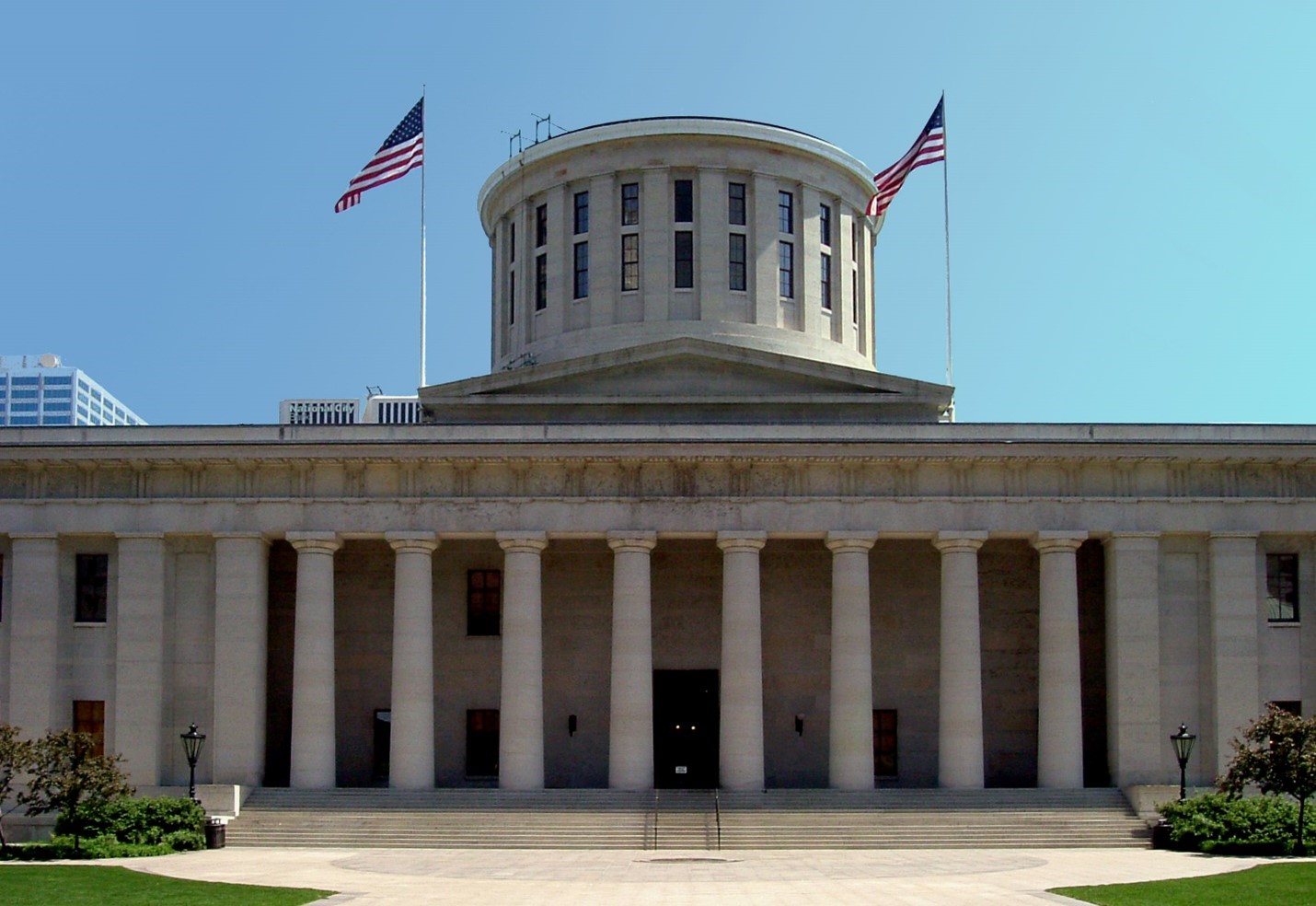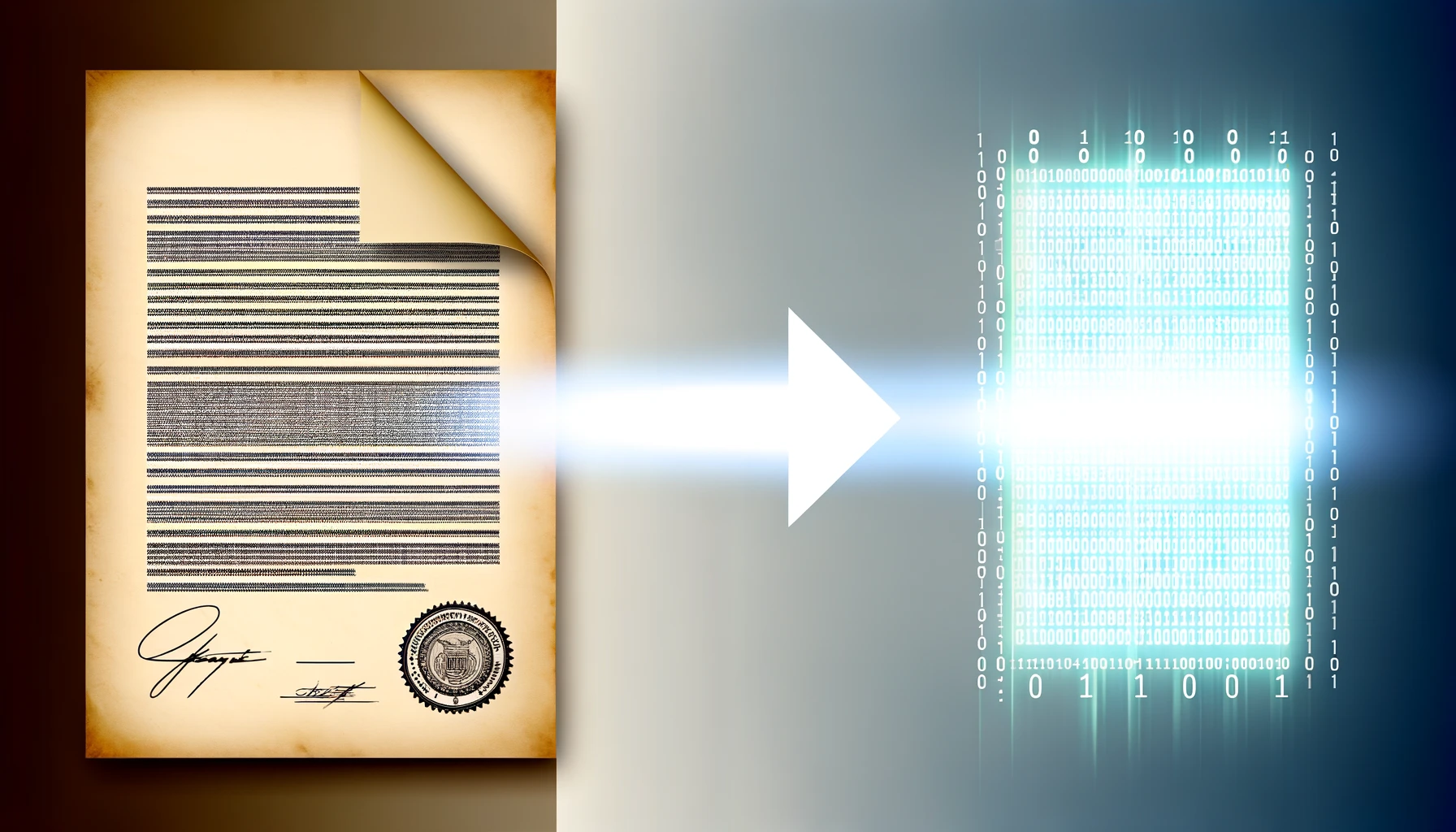Category: Recording
-

Setting the Example: Bergen County Migrates 370,000 NJ Deeds to the Blockchain
Bergen County, New Jersey has jumped on the blockchain train. The county is digitizing all of its property records. The County Clerk has inked a five-year contract with Balcony Technology Group, a blockchain-focused records company based in New Jersey. Once they’re digitized, 370,000 property deeds (representing $240 billion in property value) will migrate to…
-

What If the Deed Is Not Recorded? (Never Let This Happen.)
By accepting a deed, you become a new property owner. Be sure to file the deed you accept with the county recorder’s office. The recording becomes your public notice that you now own the property described on the deed. You might have heard that a deed works to transfer property as soon as it’s offered…
-

Ohio’s County Deed Recorders on the Verge of Digitization
Plus, New Provisions to Prevent Deed Fraud Senate Bill 94, sponsored by the two Republican State Senators Al Landis and Andrew Brenner, has successfully passed in the Ohio Senate. Its goal? Modernizing the 88 county recorders’ offices throughout Ohio.
-

eRecording Is Next-Level Deed Processing. Know What It Is, and Why It’s Legal.
For centuries, deeds went through a manual filing process for transmitting, recording, and storing. This is changing, with eRecording emerging as the new standard. Why the shift? The shutdowns in the early days of Covid jolted offices into a different mode of operating. Around the same time, county offices began strongly recommending eRecording. Electronic signatures…
-
Hawaii Land Court/Torrens Document Processing Update
The Hawaii Bureau of Conveyances (BOC) has announced significant changes to the processing of Land Court/Torrens documents, effective from November 27, 2023. This update comes in light of unexpected staffing challenges that have affected the bureau’s operational capabilities. Extended Turn-Around Time for eRecording The BOC has advised that due to these staffing issues, the processing…
-
Frequently Asked Questions: Recording a Deed
Test your deed awareness! How many of these questions can you answer before reading our thoughts?
-
Hackers Struck in December. Deed Recorders Are Still Reeling
No one is recording deeds in Onondaga County. No one is recording mortgage liens. House sales are stalling, because no one knows if there’s a new judgment or lien on a home they need to close. The recording of deeds has simply stopped. That was exactly the situation on the 26th of December, 2022. The…
-
Washington State Deed Recording Fees Just Went Up. Here’s Why.
On Jul. 25, 2021, recording fees in Seattle, Spokane, and throughout Washington State went up significantly. Records of loans and liens, community property agreements, surveys and plats are all $100 pricier. In this Q&A, we’ll flesh out why Washington State upped its recording prices, and the related impacts.
-
The Monster Under the Bed: When a Home’s Past Holds an Unrecorded Deed
No homeowner wants to find out there’s a deed in the home’s past that went unrecorded. But it can happen. In the normal transaction, at the time of the legal transfer of real estate, the deed is filed with the county recorder’s office, placing the new owner’s name in the public record. Why would anyone…
-
Pandemics, Property Transfer Breakdowns… The Digital Real Estate Industry Is Coming
The latest impetus to digitalize real estate might just turn out to be the tipping point. Practically overnight, COVID-19 is a defining element of our time. This hideous and deadly virus became a major challenge to the systems that carry us through our everyday transactions.
-
Recording Real Estate Documents: Time is Priority
State recording acts enable people to determine whose interest prevails if interests in the same property have been conveyed to several parties. For instance, what if a piece of real estate has several encumbrances: mortgage debt, a mechanic’s lien, and others? We need to know the order of priority. Deals are made based on these stakes, so it’s essential to…
-
The Real Estate Deal, Decluttered: Blockchain and Deed Recording
Throughout the past decade, blockchain technology has evolved from an upstart concept to early adoption in banking and a host of other industries. Many people are eager to learn about blockchain and how it can change the way we do business. What, we might wonder, can the blockchain do to remedy the hurdles and risks that…
-
MyDec to be Required for All Cook County Illinois Real Estate Conveyances
Effective January 21, 2019, prior to recording, all Cook County property conveyance instruments must be accompanied by an electronically-completed Cook County Real Estate Transfer Tax Declaration, aka, a “MyDec,” which can be completed via the Illinois Department of Revenue’s MyDec Transfer Tax Portal – https://mytax.illinois.gov/mydec The requirement to use MyDec is already in effect for…
-
Recording Real Estate Document in Hawaii: What the FAQ?
Documents affecting real property in Hawaii can be recorded in either the Land Court, also referred to as the Torrens system, or in the Regular System (also referred to as the Abstract system). A document recorded in both is referred to as “dual system recording.” Both are managed by Hawaii’s single statewide recorder, the Bureau…




